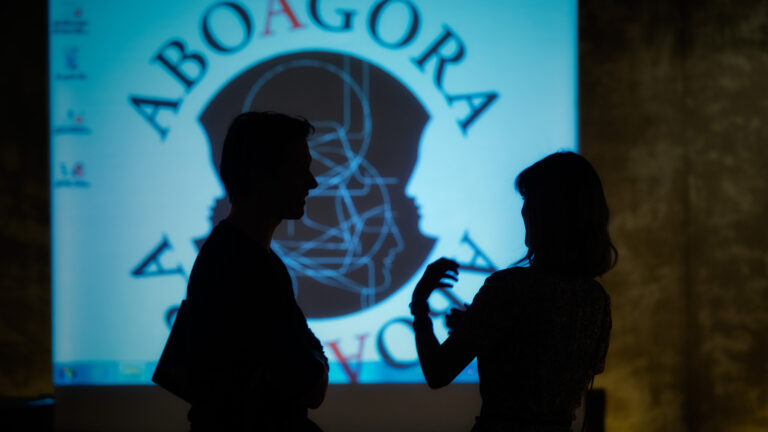
The Threads of Fate: Fate/Urðr
ABOAGORA 2016 was held on June 15-17 at the Sibelius Museum in Turku. The symposium explored the ways in which agency is understood in relation to the past. What possibilities do we have in our lives and how are we bound by the past?
Layers of lived lives mark our surroundings, our societies, and our bodies. They are inscribed by the choices of others before us and yet, at each moment, we are given a degree of free will. Can we understand ourselves and our place in the world only by recognizing our heritage, our roots? Does our past bind us to a fate we cannot alter?
the Norn of fate
In Norse mythology, humans were created as incomplete and without a fate. It was only the actions of the Norns that gave humans a fate and made them complete. Having been given a fate, humans had neither complete free will nor were they completely constrained by fate. In other words, there is neither free will nor a fate that cannot be altered. What possibilities do we humans have in our lives and how are we bound by the past?
In the years 2016–2018 Aboagora built a thematic trilogy under the title The Threads of Fate. The title refers to Old Norse mythology and beings called Norns, who rule the destinies of both gods and humans. The three most important Norns were Urðr, Verðandi and Skuld. They have at times been interpreted as the past, the present and the future but, in fact, the layers of temporality are unavoidably entangled. The question of fate (Urðr), for instance, stretches from the past to the future, and the idea of burden (Skuld) refers both to our heritage and to something that we have to confront in the future.
Each Norn offers a perspective to the current state of the world, which is discussed during the agora, blurring the boundaries between arts and sciences. At the same time, this trilogy allowed a profound investigation of urgent issues, such as identity and ethnicity, human impact on the environment, and the future of the Earth.
Some of the Agora lectures from Aboagora 2016 remain available on ABOAGORA’s YouTube channel:
Topi Lehtipuu & Hannu Salmi
Topi Lehtipuu (Tenor, Director of the Helsinki Festival) & Hannu Salmi (Professor of Cultural History and Vice Dean of the Faculty of Humanities, University of Turku)
‘Ah, bitter fate, ah, wicked, cruel fate…’ – Expressions of Destiny and Free Will
Pekka Haavisto
Member of the Finnish Parliament
Peace, Environment – and Fate
Virpi Lummaa
Academy Professor in Ecology, Evolutionary Biology and Ecophysiology, University of Turku
Riem Spielhaus
Professor of Islamic Studies at Georg-August-Universität Göttingen, Head of the Department of Textbook and Society at the Georg-Eckert-Institute for International Textbook Research
Heritage, Destiny and Free Will: European Muslims Struggling with Fate